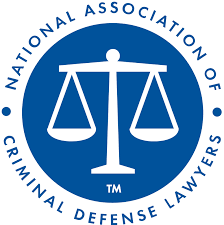Frequently Asked Questions
Frequently Asked Questions
The statements below are intended for general information only. They are not intended to be, nor should they be construed as legal advice. If you need legal advice, you should consult an attorney licensed to practice law in the State of North Dakota. Call us at (701) 223-3874, email us at lawfirm@smlawnd.com, or contact us on Facebook to discuss your case today.
-
How will COVID-19 affect my case going to trial or settling?
The COVID-19 pandemic has caused substantial backlog for the courts. Jury trials in North Dakota were postponed from mid-March, 2020 up until July 1, 2020. It may take months or even years until the backlog is caught up. Trial procedures have been modified to ensure that the constitutional right to a fair and impartial jury trial is honored, but in a way that promotes the health and safety of the parties, lawyers, jurors, witnesses, and court personnel in each case. Jurors are being questioned in smaller groups. Courtrooms are being re-configured to allow for social distancing. Plexiglass barriers often separate witnesses, lawyers, court personnel, and jurors. Hand sanitizer and masks are being made readily available and encouraged or required. Members of the public who might normally come to the courtroom to observe proceedings are being restricted from access, calling in to public access lines instead. Attorneys are having to adjust how they handle questioning and the presentation of evidence and exhibits. Many non-trial proceedings are being handled via video conferencing or telephonic proceedings where possible. Only time will tell how long these kinds of restrictions remain in place, or to what extent.
-
The police think I may have committed a crime. They want to talk to me. Do I have to?
No. You have no legal obligation to talk to law enforcement as a part of a pending investigation if you don't want to.
-
I've been arrested. The police want to ask me questions. Do I have to answer them?
No. You have the right to remain silent and to talk to a lawyer before deciding to answer questions from the police.
-
I've been charged with a crime. What can I expect?
Every case is different depending on the specific facts and circumstances. However, everyone charged with a crime has the right to be told what they are charged with and the potential penalties, the right to reasonable bail, the right to a lawyer, and the right to a trial. You should always consult with an attorney when charged with a crime to make sure your rights are protected and to explore your legal options.
-
I like to hunt but have been convicted of a crime. Do I lose my firearm rights? Is it possible to get them back?
Generally anyone convicted of a felony, and certain misdemeanors, will lose their firearm rights under both state and federal law. Under state law, the period of time you lose your firearm rights can vary depending on the type of conviction and certain details of your case. There is a process to try and get your firearm rights restored under state law sooner than what would normally be allowed, but that is up to a Judge to decide on a case-by-case basis. Under federal law, you typically lose your firearm rights for life and there is no process to have them restored.
-
What happens if I am not a United States citizen and I am convicted of a crime?
If you are not a United States citizen, being convicted of a crime may have citizenship and immigration consequences. This could include you being denied citizenship and being deported. You should consult with an attorney who practices in the area of immigration law to make sure you understand the potential consequences of a criminal conviction.
-
Is there a way to get a criminal conviction expunged from my record?
In certain very specific types of cases, where particular conditions have been met, it is possible to expunge your record of certain convictions.
-
Is there a way to have my criminal record sealed?
Yes. It is ultimately up to the Court, but it is possible to have records of a misdemeanor conviction sealed if it has been at least three years since the conviction and you have had no further criminal violations. It is possible to have records of certain felony convictions sealed if it has been at least five years since the conviction and you have had no further criminal violations.
BUSINESS HOURS
By Appointment Only
- Mon - Fri
- -
- Sat - Sun
- Closed


